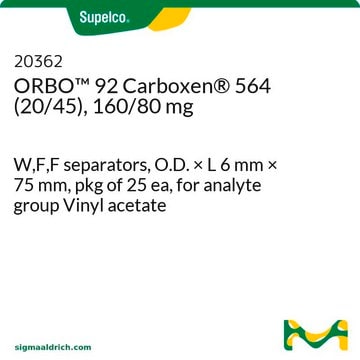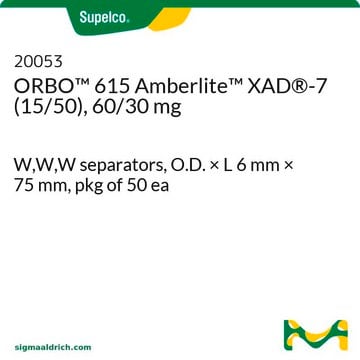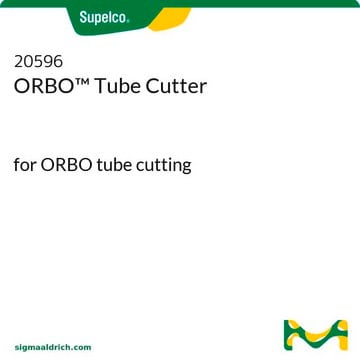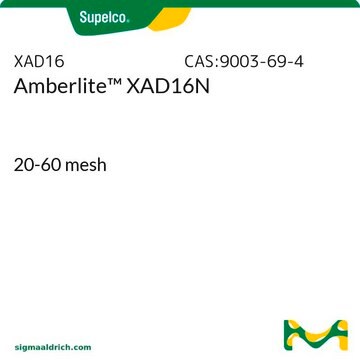20349
ORBO™ 47 Amberlite™ XAD®-7 specially treated, 100/50 mg
W,W,W separators, O.D. × L 6 mm × 90 mm, pkg of 50 ea
Sign Into View Organizational & Contract Pricing
All Photos(1)
About This Item
UNSPSC Code:
47131900
Recommended Products
material
W,W,W separators
Agency
NIOSH 2546
OSHA 32,110
product line
Amberlite™
ORBO™
composition
Bed A, 100 mg
Bed B, 50 mg
packaging
pkg of 50 ea
manufacturer/tradename
ORBO™ 47
technique(s)
active air sampling: suitable
O.D. × L
6 mm × 90 mm
matrix
XAD-7 (specially treated)
application(s)
air monitoring
environmental
industrial hygiene
General description
ORBO™ sorbent tubes contain two beds of the same selective adsorbent separated by glass wool or foam, for gas and vapor sampling. The dual-layer or two-bed construction of the tube allows for any sample breakthrough to be captured in the smaller back-up bed.
Legal Information
Amberlite is a trademark of DuPont de Nemours, Inc.
ORBO is a trademark of Sigma-Aldrich Co. LLC
XAD is a registered trademark of The Dow Chemical Company or an affiliated company of Dow
Storage Class Code
11 - Combustible Solids
WGK
WGK 3
Flash Point(F)
Not applicable
Flash Point(C)
Not applicable
Choose from one of the most recent versions:
Certificates of Analysis (COA)
Lot/Batch Number
Sorry, we don't have COAs for this product available online at this time.
If you need assistance, please contact Customer Support.
Already Own This Product?
Find documentation for the products that you have recently purchased in the Document Library.
Customers Also Viewed
Liang Yang et al.
Cell reports, 24(3), 585-593 (2018-07-19)
In response to blue light, cryptochromes photoexcite and interact with signal partners to transduce signal almost synchronously in plants. The detailed mechanism of CRY-mediated light signaling remains unclear: the photobiochemical reactions of cryptochrome are transient and synchronous, thus making the monitoring and
Yi Li et al.
Cell chemical biology, 27(7), 858-865 (2020-05-30)
The engineered ascorbate peroxidase (APEX) is a powerful tool for the proximity-dependent labeling of proteins and RNAs in live cells. Although widely use in mammalian cells, APEX applications in microorganisms have been hampered by the poor labeling efficiency of its
Our team of scientists has experience in all areas of research including Life Science, Material Science, Chemical Synthesis, Chromatography, Analytical and many others.
Contact Technical Service







